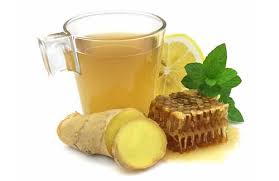History
southeastern Asia, a region whose cuisines still feature this wonderfully spicy herb, ginger has been renowned for millennia in many areas throughout the world. Ginger is mentioned in
ancient Chinese, Indian and Middle Eastern writings, and has long been prized for its aromatic,
culinary and medicinal properties. After the ancient Romans imported ginger from China
almost two thousand years ago, its popularity in Europe remained centered in the
Mediterranean region until the Middle Ages when its use spread throughout other countries.
Although it was a very expensive spice,
Aromatic, pungent and spicy, ginger adds a special flavor and zest to Asian stir fries and many fruit and vegetable dishes. Fresh ginger root is available year round in the produce section of your local market.
Benifits
1-
Safe and Effective Relief of Nausea and Vomiting During Pregnancy
Ginger's anti-vomiting action has been shown to be very useful in reducing the nausea and vomiting of pregnancy, even the most severe form,hyperemesis gravidum, a condition which usually requires hospitalization. In a double-blind trial, ginger root brought about a significant reduction in both the severity of nausea and number of attacks of vomiting in 19 of 27 women in early pregnancy (less than 20 weeks). Unlike antivomiting drugs, which can cause severe birth defects, ginger is extremely safe, and only a small dose is required.
Anti-Inflammatory Effects
Ginger contains very potent anti-inflammatory compounds called gingerols. These substances are believed to explain why so many people with osteoarthritis or rheumatoid arthritis experience reductions in their pain levels and improvements in their mobility when they consume ginger regularly. In two clinical studies involving patients who responded to conventional drugs and those who didn't, physicians found that 75% of arthritis patients and 100% of patients with muscular discomfort experienced relief of pain and/or swelling.
Protection against Colorectal Cancer
Gingerols, the main active components in ginger and the ones responsible for its distinctive flavor, may also inhibit the growth of human colorectal cancer cells, suggests research presented at the Frontiers in Cancer Prevention Research, a major meeting of cancer experts that took place in Phoenix
Tips for Preparing and Cooking
Ginger
To remove the skin from fresh mature ginger, peel with a paring knife. The ginger can then be sliced, minced or julienned. The taste that ginger imparts to a dish depends upon when it is added during the cooking process. Added at the beginning, it will lend a subtler flavor while added near the end, it will deliver a more pungent taste.











0 comments:
Post a Comment